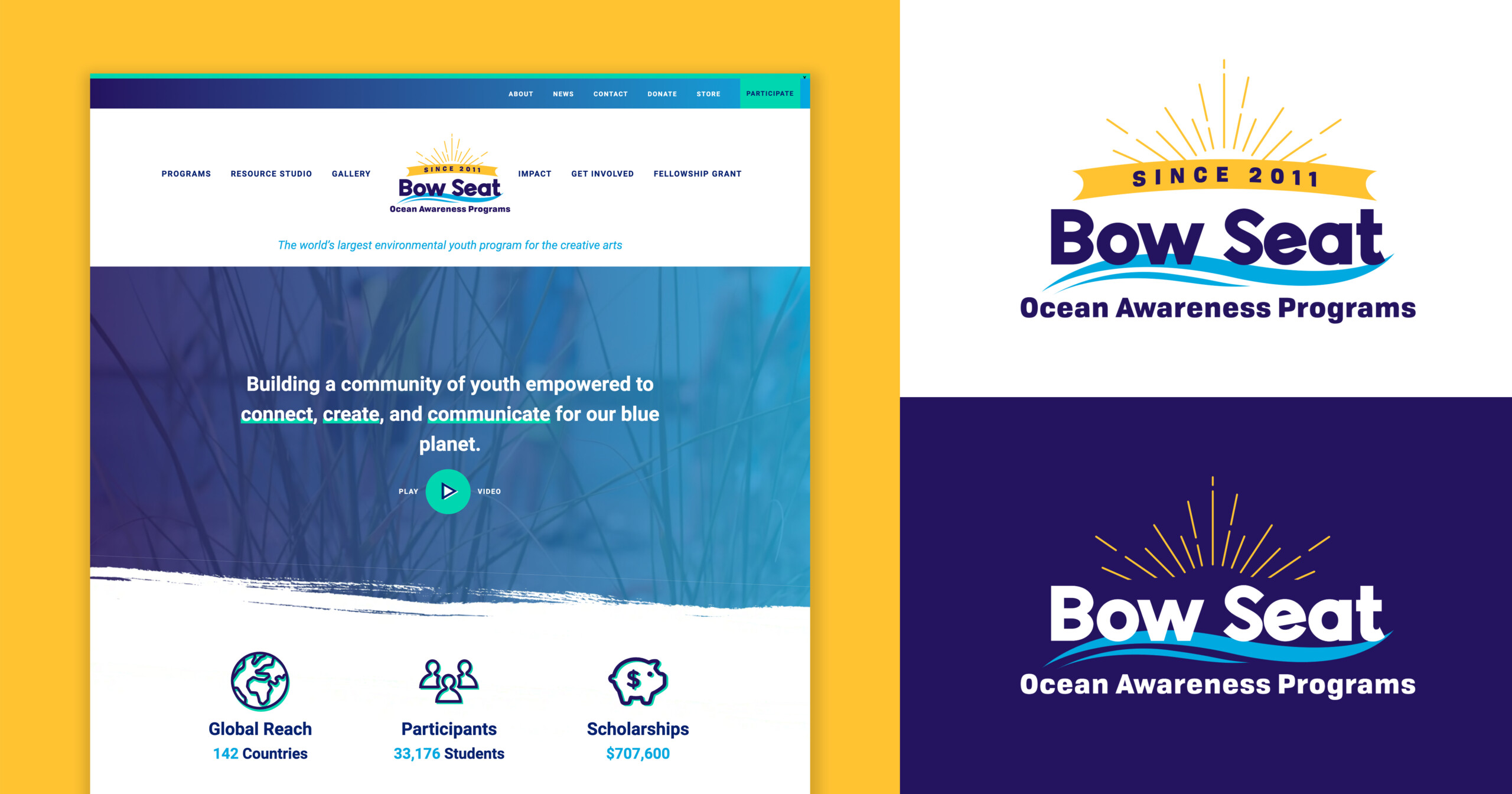Marketing
Shaping Success Sustainably with Green Marketing Strategies
March 6, 2024
3 minutes

As businesses strive for growth, environmental awareness emerges among consumers as more than a trend—green marketing strategies are here to stay. Businesses are finding that integrating sustainability into their growth strategies is not only ethically sound but also a unique competitive advantage.
This shift represents a significant move towards blending profitability with positive environmental impact. The question then becomes: How can businesses seamlessly incorporate these eco-friendly principles into their marketing without diluting their core message or mission? Keep reading to learn more about green marketing strategies, how green marketing can help you build brand loyalty, and how to ensure authenticity in your messaging.
Introduction to Green Marketing Strategies
Green marketing strategies focus on promoting products and services that are environmentally friendly and sustainable. The aim is to connect with eco-conscious consumers who prioritize the planet’s health in their purchasing decisions. When businesses integrate sustainability into their brand strategies, they contribute positively to the environment and carve out a competitive edge in the market.
This approach is vital for shaping success sustainably, ensuring long-term growth and relevance in an increasingly eco-aware business landscape. Consumers today are more informed and selective about the products they buy, favoring brands that demonstrate a genuine commitment to environmental stewardship. This shift has necessitated a change in how companies approach their marketing and messaging.
Companies are now tasked with not just claiming to be green but proving it through transparent and meaningful actions. This change in consumer behavior underscores the importance of green marketing strategies.
Read More: Sustainability Marketing Firms | Finding the Right Fit for Your Cause
Evolution of Green Marketing
Initially, green marketing emerged from the environmental movement of the late 20th century, primarily focusing on products that could minimize ecological damage. However, as awareness of global environmental issues grew, so did the scope of green marketing.
Modern green marketing strategies go beyond mere environmental considerations, integrating sustainability principles into every facet of a business’s operations. This evolution and holistic approach to sustainability mirror the growing consumer awareness and demand for products that are eco-friendly, ethically produced, and economically viable. Companies are now evaluated based on their broader impact on society and the environment, pushing brands to adopt more responsible practices across their supply chains.
Examples of this shift are evident in how leading companies have adapted their marketing strategies to align with green principles. For example, Patagonia has long been a pioneer in this space.
It emphasizes its commitment to climate change mitigation by switching to organically grown cotton in 1996 and continuously seeking environmentally friendly materials for its products. Similarly, Starbucks has set ambitious goals for a resource-positive future, aiming to halve its carbon, water, and waste footprints by 2030.
Read More: Sustainable Marketing: 5 Ways to Express Eco-Friendly Business Practices in Marketing
Authenticity in Sustainability Messaging
Authenticity in your sustainability messaging is non-negotiable if you aim to build lasting trust with consumers. In an era where eco-consciousness is rising, customers are not just looking for green products; they’re scrutinizing brands for genuine commitment to sustainability. This means that any hint of greenwashing—making false or misleading claims about the environmental benefits of a product or service—can severely damage your brand’s reputation and trustworthiness.
To reinforce authenticity in your green marketing strategies and campaigns, prioritize transparent communication. Aim to be open about your sustainability practices, your progress, and the challenges you’re facing. Provide clear, accessible information about your supply chain, the materials you use, and the steps you’re taking to minimize environmental impact.
Moreover, ensure that your sustainability practices are verifiable. You can achieve this through third-party certifications, detailed reports on your environmental impact, and clear documentation of your supply chain practices. By providing evidence of your sustainability efforts, you allow consumers to verify your claims, further bolstering the authenticity of your messaging.
Read More: Tips for Creating Effective Marketing Campaigns That Will Engage Your Audience and Produce Results
Case Studies and Examples of Green Marketing Strategies
At Cross & Crown, we’ve collaborated with various organizations to implement effective green marketing strategies that align with their unique missions and sustainability goals. We will explore two examples to illustrate the impact and success of these strategies in action.
1. The Appalachian Trail Conservancy

The Appalachian Trail Conservancy (ATC) oversees the protection and maintenance of the Appalachian National Scenic Trail, a 2,190-mile footpath traversing 14 East Coast states and attracting millions annually. The Conservancy was facing the challenge of unifying diverse conservation efforts. Therefore, it initiated the Wild East movement, a comprehensive campaign to safeguard the trail and its surrounding landscapes.
ATC partnered with our creative team to develop wildeast.org, a digital hub designed to centralize conservation messages and mobilize support against threats like urban sprawl and climate change. The website has since significantly boosted awareness and engagement, laying a strong foundation for ongoing conservation efforts. The increased engagement showcases the power of green marketing strategies in rallying community and stakeholder support for environmental causes.
2. Bow Seat

Bow Seat, a Boston-based nonprofit, empowers teens to advocate for ocean conservation through creative expression. Since its inception, the organization has sought innovative ways to engage audiences and amplify its impact. They enlisted Cross & Crown to enhance Bow Seat’s storytelling through a professional brand video and a dynamic, user-focused website.
The collaboration led to a comprehensive rebranding, including a new logo that bolstered Bow Seat’s credibility and presence in the ocean conservation movement. Our design and video teams worked closely to create a website that showcases youth-contributed art in an interactive gallery while improving user engagement. The results were a 239% increase in page views and a 64% surge in new website visitors, demonstrating the power of effective green marketing strategies to drive awareness and participation in environmental advocacy.
Read More: 3 Ways to Build a Custom Brand for Your Nonprofit
Leveraging Holistic Green Marketing Strategies for Sustainability
Leveraging a holistic strategy across multiple channels is key to amplifying your sustainability efforts and achieving marketing success. An integrated marketing agency can help you weave your green messaging through digital platforms, social media, online advertising, and beyond. Utilizing these channels allows you to connect with a wider audience, making your sustainable messaging more accessible and engaging.
Digital platforms offer a powerful medium to broadcast your sustainable initiatives, allowing you to reach consumers with the click of a button. Social media, in particular, can help create a community around your brand, fostering discussions and sharing that elevate your environmental mission.
Data analytics and targeted marketing strategies are invaluable tools in this endeavor. They help you understand your audience deeply, tailoring your sustainability messages to specific consumer segments. This personalized approach increases the relevance and impact of your message, driving engagement and loyalty.
Furthermore, investing in web and video production can enhance your green marketing strategies. A well-designed website and compelling video content can capture the essence of your sustainability efforts. They help you tell your story in a way that’s informative and inspiring. Overall, leveraging these holistic strategies boosts your brand’s sustainability profile and drives meaningful engagement.
Read More: What is Holistic Marketing? A Strategic Outlook for 2024
Building Brand Loyalty Through Green Marketing
Green marketing aligns your brand with the growing consumer demand for sustainability, paving the way for long-term loyalty. When you demonstrate a genuine commitment to environmental responsibility, you meet consumer preferences and positively influence brand perception. This alignment can set you apart in competitive markets, where eco-conscious consumers seek brands that reflect their values.
The impact of sustainability initiatives on customer loyalty is profound. Consumers are more likely to stay loyal to brands that actively contribute to environmental conservation. They view these efforts as an extension of their personal beliefs and values.
Consistency in your messaging and actions is critical in this regard. Inconsistent practices or messaging can erode trust, whereas consistent, authentic green marketing strategies strengthen consumer relationships.
Benefits and Challenges of Green Marketing Strategies
Adopting green marketing strategies offers significant advantages for your brand. However, this path also presents challenges that require careful navigation to ensure your efforts yield positive results. Below, we explore the benefits and hurdles of integrating green marketing into your business strategy.
Benefits:
- Improved brand image: By showcasing your commitment to sustainability, you can differentiate your brand and elevate its reputation in the eyes of consumers.
- Increased customer loyalty: Aligning with the values of eco-conscious consumers fosters a deeper connection, encouraging repeat business and long-term loyalty.
- Competitive advantage: Standing out in a crowded market is easier when you can demonstrate tangible sustainability efforts that appeal to consumer preferences.
Challenges:
- Cost considerations: Implementing sustainable practices can require significant upfront investment, which may impact short-term financials.
- Maintaining authenticity: Avoiding accusations of greenwashing demands genuine, verifiable actions that match your marketing messages.
- Consumer skepticism: With rising awareness, consumers are more critical of sustainability claims, requiring brands to work harder to earn their trust.
To overcome these challenges, focus on transparency and consistency in your green marketing efforts. Engage in genuine sustainability practices, communicate your actions clearly, and use third-party certifications to validate your claims.
Read More: 6 Ways an Integrated Marketing Agency Optimizes Your ROI
Embrace Green Marketing Strategies for Sustainable Success
In navigating the path to sustainable success, embracing green marketing is essential. Embracing principles like authentic messaging, holistic strategies, and a commitment to genuine sustainability efforts can help you build a loyal customer base, enhance your brand image, and achieve a competitive advantage. Navigating the challenges of green marketing requires a nuanced approach and a skilled partner like Cross & Crown to craft impactful, sustainable narratives.
Our creative team is committed to helping you elevate your sustainability efforts and enhance your brand’s presence. We offer comprehensive marketing services designed to support your green initiatives every step of the way. Contact us today to start implementing effective green marketing strategies that resonate with your audience and drive long-term success.
